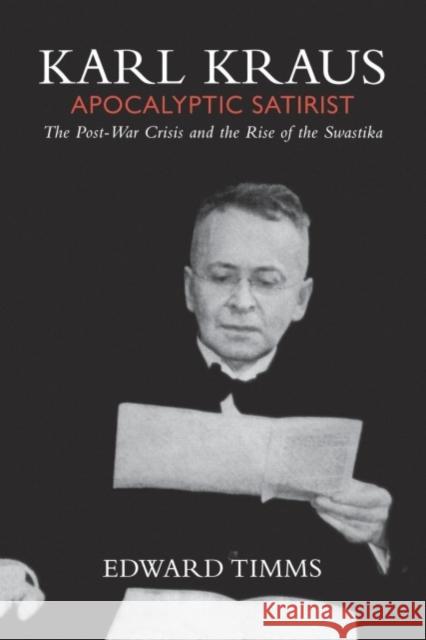Karl Kraus: Apocalyptic Satirist: The Post-War Crisis and the Rise of the Swastika » książka
Karl Kraus: Apocalyptic Satirist: The Post-War Crisis and the Rise of the Swastika
ISBN-13: 9780300204605 / Angielski / Miękka / 2013 / 662 str.
The focus of the first volume of 'Karl Kraus: Apocalyptic Satirist' was on the cataclysmic final years of the Austro-Hungarian Empire. This book takes up the story in November 1918, when the satirist responded to the creation of the new republics with a defiant hope, invoking international law against the dual threat of reactionary politics and irresponsible media. While contemporaries such as Walter Benjamin regarded Kraus as a heroically isolated figure, this book places him within a dynamic field of cultural production, highlighting the court cases he pursued with his lawyer Oskar Samek and the theatrical projects that earned him the friendship of Bertholt Brecht. The legend that the satirist responded to Hitler's seizure of power with stunned silence is refuted in the final section of the book, 'Into the Third Reich', which highlights his analysis of 'creeping fascism' and of the swastika as the 'twisted cross' of politicised religiosity. His career culminated in 'Dritte Walpurgisnacht', an analysis of Nazi ideology that has proved enduringly influential.Timms argues that Kraus's lifelong critique of the media, combining Orwell's political radicalism with Joyce's linguistic playfulness, incisively anticipates the propaganda techniques of our own age. 'Edward Timms meticulously interprets this major writer's most complex period of literary, cultural and political activity, providing what amounts to an entire cultural history of the period.' Professor Gilbert Carr, Trinity College Dublin Edward Timms is Research Professor in History at the Centre for German-Jewish Studies, University of Sussex and a Life Fellow of Gonville & Caius College, Cambridge. He has a special interest in Austrian-Jewish cultural history and is best known for his earlier volume 'Karl Kraus: Apocalyptic Satirist: Culture and Catastrophe in Habsburg Vienna' (1986). In 2002 he was awarded the Austrian State Prize for History of the Social Sciences and in 2005 he was awarded an OBE for services to scholarship.











